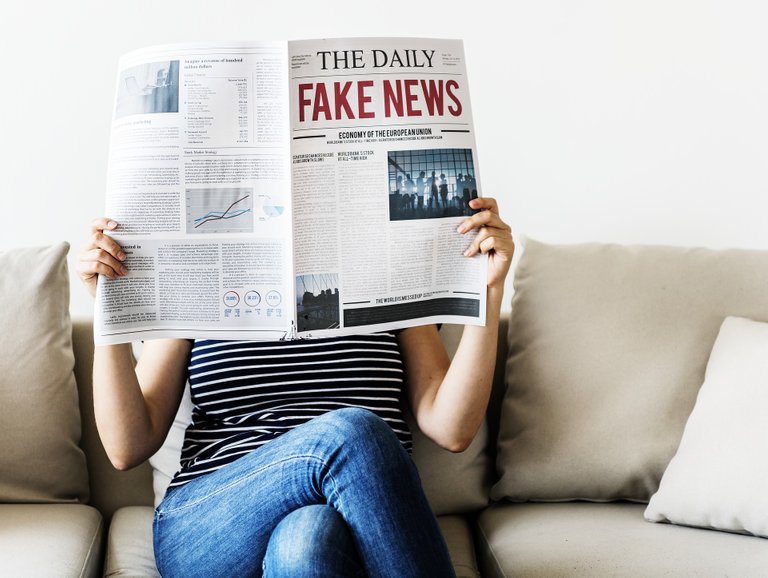We humans are surprisingly easily made to believe what we want to hear. We are even capable of adding details to fake news and this is the way we create fake memories associated with events that never happened.

- Be also sure to check out my other posts and follow me @kralizec and subscribe to my Youtube channel at Kralizec Gaming Youtube Channel
Fake memories can be deceiving. Sometimes we can put fake memories into our memory without even knowing it. But they are there and we trust them so much that we wouldn't even have the smallest problem passing through a lie detector test. We don't even realize that what we remember didn't really happen. Fake memories played a scary role in a number of criminal cases but we can't avoid them in real life either.
An Irish-American team that was lead by Gillian Murphy from the University College Cork used the Irish referendum about abortions from 2018. Both the people who were pro-abortion and anti-abortion ran very intense media campaigns before the referendum. Luckily, the Irish law requires that both the pro-abortion and anti-abortion campaigns were equally represented in media. And this paid off. The Irish were quite upstanding citizens because almost two-thirds of all eligible voters came to vote. The experts expected the referendum to be a close call. But surprisingly, 66.4 % of the voters voted for the end of the ban on interruptions.
Before the referendum, the Irish scientists in cooperation with Elizabeth Loftus – the foremost expert on fake memories – and her team asked more than three thousand voters who were already decided on how they will vote if they could show them 6 news articles. Two of them were pure fake news. One accused pro-abortion advocates of illegal acts and the other did the same about anti-abortion advocates. Then they asked the people if they ever read any of the 6 articles. And if they knew any of them, if they could add any details that weren't mentioned in the articles themselves.
The volunteers were told that some of the news may be fake and they were also asked to attempt to figure out which they think are true and which are fake.
The results are quite interesting. More than half of the people were capable of adding details to at least one of the fake news articles. Many added a lot of detail to a news article they could not ever read or even heard about because it was completely fabricated. This is a prime example of fake memories. And as you might guess, pro-abortion advocates were more likely to have fake memories of articles smearing anti-abortion advocates and vice-versa. And nothing changed when they knew some of the news was fake. On top of this, the volunteers underwent an IQ test. There is no evidence that people with a lower IQ are more likely (or less likely) to have fake memories.
Fake memories are a really interesting phenomenon. But one that shouldn't be taken lightly. Every single one of us likely has some. Thus, in the future, if you are going to talk about something, make sure it is actually what happened. Especially if it is something you are prone to agree with on principle or because it suits your worldview.
Sources:
- If you like the content I’m producing about science maybe you will like the content I produce about gaming as well! Be sure to check out my other posts!
Yes right bro fake news create fake memory.
This is why hypnotic regression is pseudoscience, and why even verifiable history is poorly understood by the general public due to their biases and the stream of half-truths we are fed in news and politics.
I love, love, love all things Elizabeth Loftus! :D
I like how you related this phenomenon of false memory to current affairs @kralizec. Especially because false memories have the potential to impact individuals to the extent of influencing their behaviour in the long term. When such influence happens in way that build social tensions, this can become truly worrisome.
It is true that the majority of people are not susceptible to having entirely false memories implanted in their minds (as studies - by Loftus - have found). But research has also shown that individuals afflicted by chronic stress are the ones more susceptible to it. So, can you imagine in the context of highly contentious topics like abortion and the Brexit referendum?
Nowadays, we live in a world were stress and tensions arise from phenomena that aren't even real :/ This is why we have the responsibility to think more critically about the pieces of news we stumble upon.
All the best to you,
Abigail
Thanks for the post! I included it in my daily science & technology post for tomorrow (under @remlaps-lite). But I'm confused by this:
I don't have access to the full article, but the abstract says this:
Does this mean to suggest that the overall likelihood of false memories is the same, regardless of cognitive ability, but in people with low cognitive abilities the fake memories are more likely to align with pre-existing biases? Which would imply that people with higher cognitive abilities are more likely to have false memories that don't align with their beliefs?